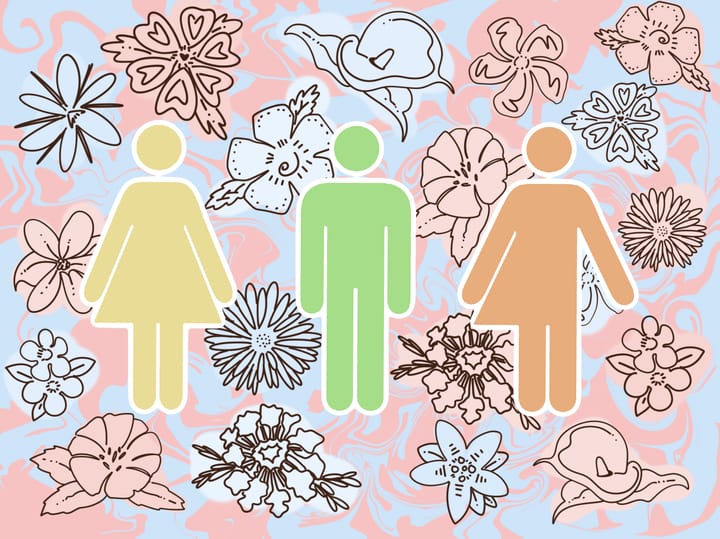Baby names keep getting weirder

Parents’ announcements of their babies’ arrival into the world have flooded my social media feed as of late. Unfortunately, the accompanying pictures of the squishy newborns are not what make me do a double take — it’s the infants’ perplexing names.
While many modern parents are giving their children questionable names, kids should receive a meaningful name that doesn’t come from the desire to fulfill a popular trend or make others shiver with cringe. From Trisha Paytas’s daughter Malibu Barbie to your next-door neighbor’s son Jaxxon, cringeworthy baby naming has become an epidemic.
Off-the-wall baby names are a more recent trend, specifically in American culture. The U.S. Social Security Administration’s 50 most popular baby names of 2021 include unusual names like Maverick and Nova.
When I was a child in the early 2000s, the most daring of names only involved an unnecessary letter here and there. For example, my parents spelled my name A-B-B-E-Y, seemingly in retaliation against the typical A-B-B-Y.
However, the trend of unique baby names isn’t new to American society. As Puritans fled England, most parents named their children after biblical figures, like Samuel and Esther. Throughout the American Revolution, people paid homage to rebel heroes by naming their babies after influential soldiers like George and Montgomery. Modern-day politics have even influenced baby names, with Reagan making the list for 2012’s top 100 baby names.
Although the U.S. has seen influxes of strange baby names in the past, nothing compares to the so-called quirky spellings, use of random objects and excessive vowels in contemporary children’s names. Sorry, Paisleigh, River and Taylee.
This trend is perhaps most evident among America’s celebrities, where baby naming seems like a wild TV game show. Who can name their baby the most random, absurd thing? Grimes and Elon Musk’s child X Æ A-12 probably comes to mind. Don’t forget Beyoncé and Jay-Z’s son Sir, or Shannyn Sossamon’s kid Audio Science.
The current unique naming culture has most likely arisen from society’s shift from conformity to individualism.
People now attempt to prioritize each other’s differences and encourage others to embrace their true selves. As a result, parents try to set their children on the path to individualism from birth by naming the infants something abstract and painfully unique.
A Times article notes that “Michael” and “Jessica” topped popular baby name charts in 1985, with “Michael” accounting for 3% of baby names and “Jessica” for 2.3%.
As the Michaels and Jessicas reach the age of child-rearing, they’re conjuring up unconventional names for their newborns. Michael and Jessica have experienced the horror that is life with a basic name, and they don’t want their precious baby to live through the same pain.
However, this nonconformity to society has essentially become conformity.
Giving your child a traditional name seems to be less and less common. People who go the basic route and birth Emilys and Bens are deemed uncreative and unaccepting of others. If these parents truly cared about individualism, “Jurnee” would be scrawled atop their baby’s birth certificate.
Additionally, character should speak to a person’s sense of strength, exceptionality, and beauty, not a random name dreamt up in the whirlwind of another cringey trend. If you had no say in your name, why should it dictate your uniqueness and individuality?
When I was a child, troublesome spellings and never-before-heard-of names made children’s lives even more difficult. Classes often waited with bated breath for a substitute teacher to mispronounce a student’s name and stutter through the mess of letters. Students giggled and took to calling the uniquely-named student by the mispronunciation.
My distaste for the current state of baby names also comes from my own selfishness. Hearing those names gives my ears pain and triggers flashbacks to the 2012 era of chevron print and duct tape mustaches.
I hope that this moment in baby naming culture is nearing its end. I frequently remind myself that old trends die out and new trends resurge. Nonetheless, in 10 years — and even now — many names of the up-and-coming generation will continue to be a source of cringe and humor.



